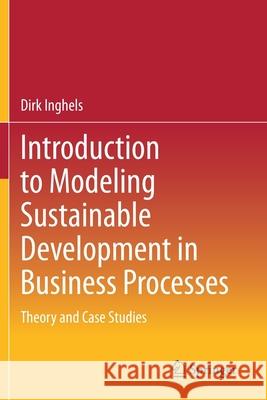Introduction to Modeling Sustainable Development in Business Processes: Theory and Case Studies » książka
topmenu
Introduction to Modeling Sustainable Development in Business Processes: Theory and Case Studies
ISBN-13: 9783030584245 / Angielski / Miękka / 2021 / 248 str.
Introduction to Modeling Sustainable Development in Business Processes: Theory and Case Studies
ISBN-13: 9783030584245 / Angielski / Miękka / 2021 / 248 str.
cena 401,58
(netto: 382,46 VAT: 5%)
Najniższa cena z 30 dni: 385,52
(netto: 382,46 VAT: 5%)
Najniższa cena z 30 dni: 385,52
Termin realizacji zamówienia:
ok. 22 dni roboczych.
ok. 22 dni roboczych.
Darmowa dostawa!
Sustainable development and corporate social responsibility drive countries, regions, and businesses to take environmental and social concerns into account when realizing economic objectives. A growing awareness of the connectedness between industrial, societal, and environmental systems might shift the way businesses will be operated. This book aims to help students and business practitioners use quantitative modeling in their pursuit to make business processes sustainable. Two approaches are introduced: linear optimization and system dynamics. Moreover, the quantification of the three different sustainability objectives is also addressed. Next to introducing the theoretical background, many real-life examples are discussed to demonstrate how the modelling techniques can be applied.











